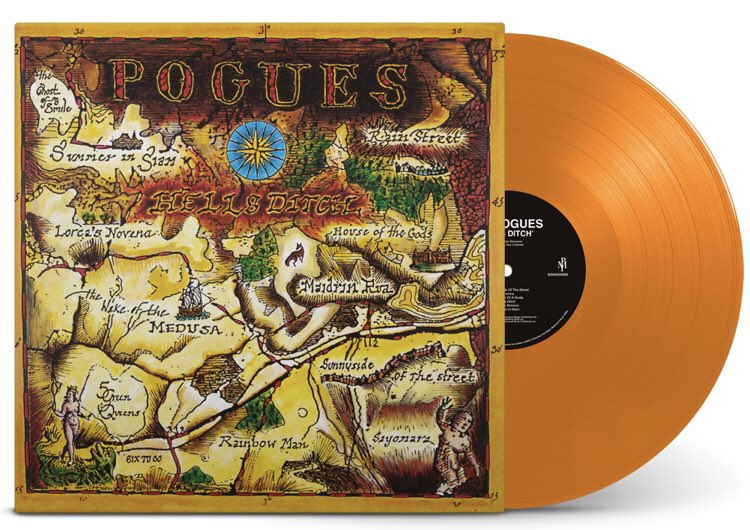For many fans of The Pogues, Hell’s Ditch didn’t just mark a point of departure for the band, it marked the end of the band as they knew it. Their last album with frontman Shane MacGowan, The Pogues were caught at a crossroads while they recorded it. Behind them lay their past: frenetic Irish punk-folk that had made them a truly unique proposition on the world’s stage; in front of them: new sounds and influences, explored with typical confidence on Hell’s Ditch. Slumped over at the side of the road while they made their choices: their beleaguered singer, whose well-reported Olympian booze intake was beginning to take its toll, not only on the band’s stability but on his own abilities.
The big question was: could they dig themselves out and make it to safety?
Straying into new territory
In retrospect, it seems inevitable that The Pogues would find themselves here, if only for those album titles alone: Rum Sodomy & The Lash, If I Should Fall From Grace With God… the signs were always there. If Hell Ditch’s predecessor, Peace And Love, was perhaps a brief detour, its title suggesting MacGowan thought he could trick himself into contentedness, Hell’s Ditch’s seemed to be named for his seemingly unstoppable descent. Not that the group’s main songwriting force didn’t leave The Pogues Mk I with a worthy epitaph. Though its wide range of styles left some listeners baffled at the time, a reappraisal of Hell’s Ditch finds it rewarding those in search of a diverse-minded Pogues. MacGowan’s poetic allusions remain as thrillingly rife as ever throughout the album, while the sheer stylistic range on Hell’s Ditch suggests The Pogues not only remained capable of pulling together as a unit, they could still find inspiration in filtering new sounds through their inimitable vision.
It’s no accident that Hell’s Ditch’s artwork featured a map plotted with song titles. Almost every song on the album found The Pogues straying into new territory. And when, as on opener The Sunnyside Of The Street, the group let loose with their classic sound, the familiarity seems to spur MacGowan into a search for some much-needed stability: “Had the women, I had the booze,” he sings amid a litany of horrors (“bodies in Bombay”, promises “to take my life as I would a whore”), before declaring that he “Just wanna stay right here/On the sunnyside of the street”.





